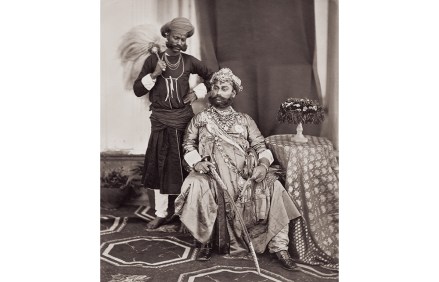A Hindu Cromwell courteously decapitates hundreds of maharajas
On 25 July 1947, in the searing heat, almost 100 princes bedecked in jewels gathered in a circular room in New Delhi. Some of them ruled over principalities of less than a square mile; others over an area larger than Korea. All of them had been Britain’s close allies for more than a century and, now that the British were leaving India, many looked forward to regaining their states’ independence. But on that fateful day, as Lord Mountbatten swaggered around in his ivory white uniform, anxious murmurs rippled through the throng. A cousin of George VI, and related to virtually every royal in Europe, the viceroy was no republican; yet





